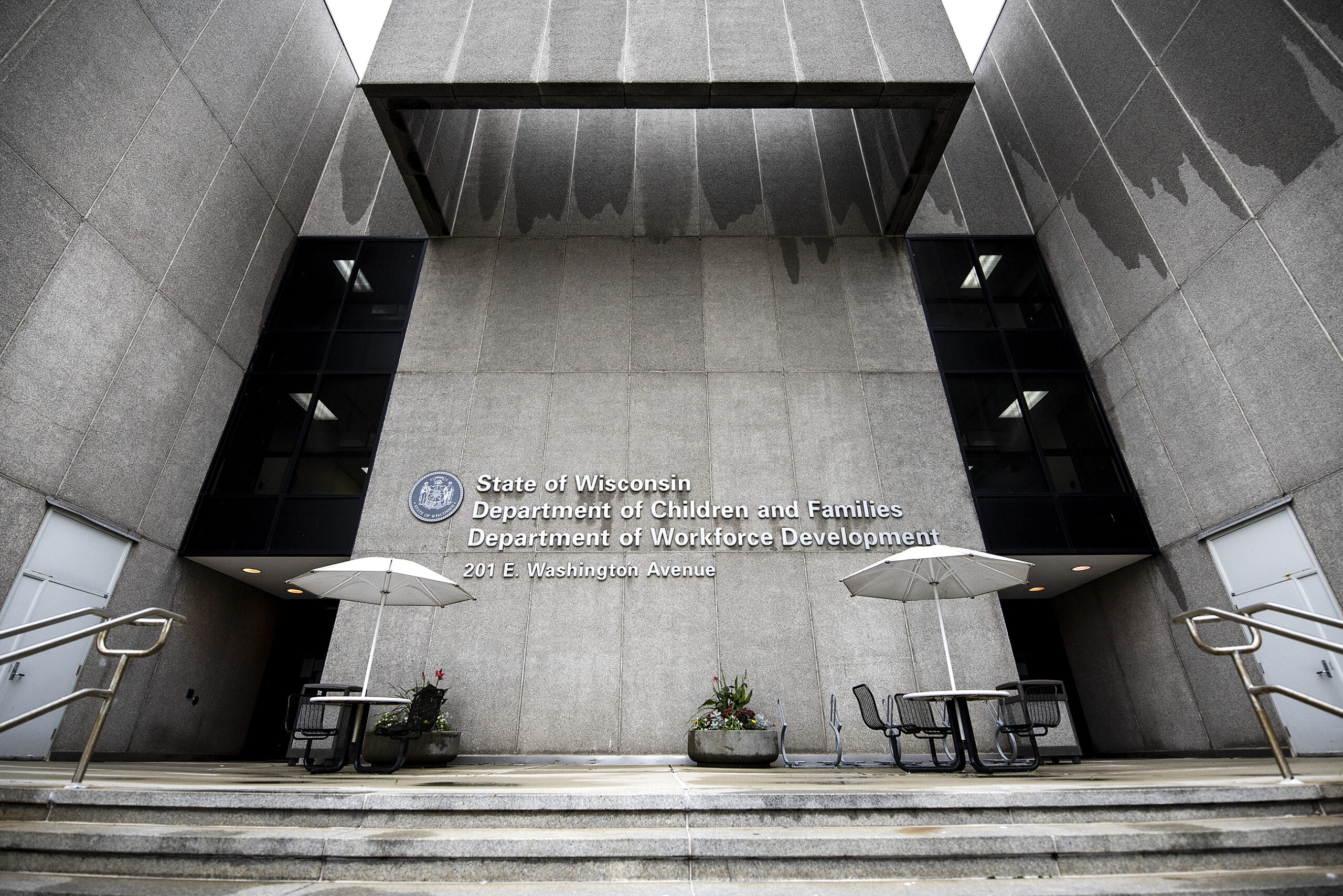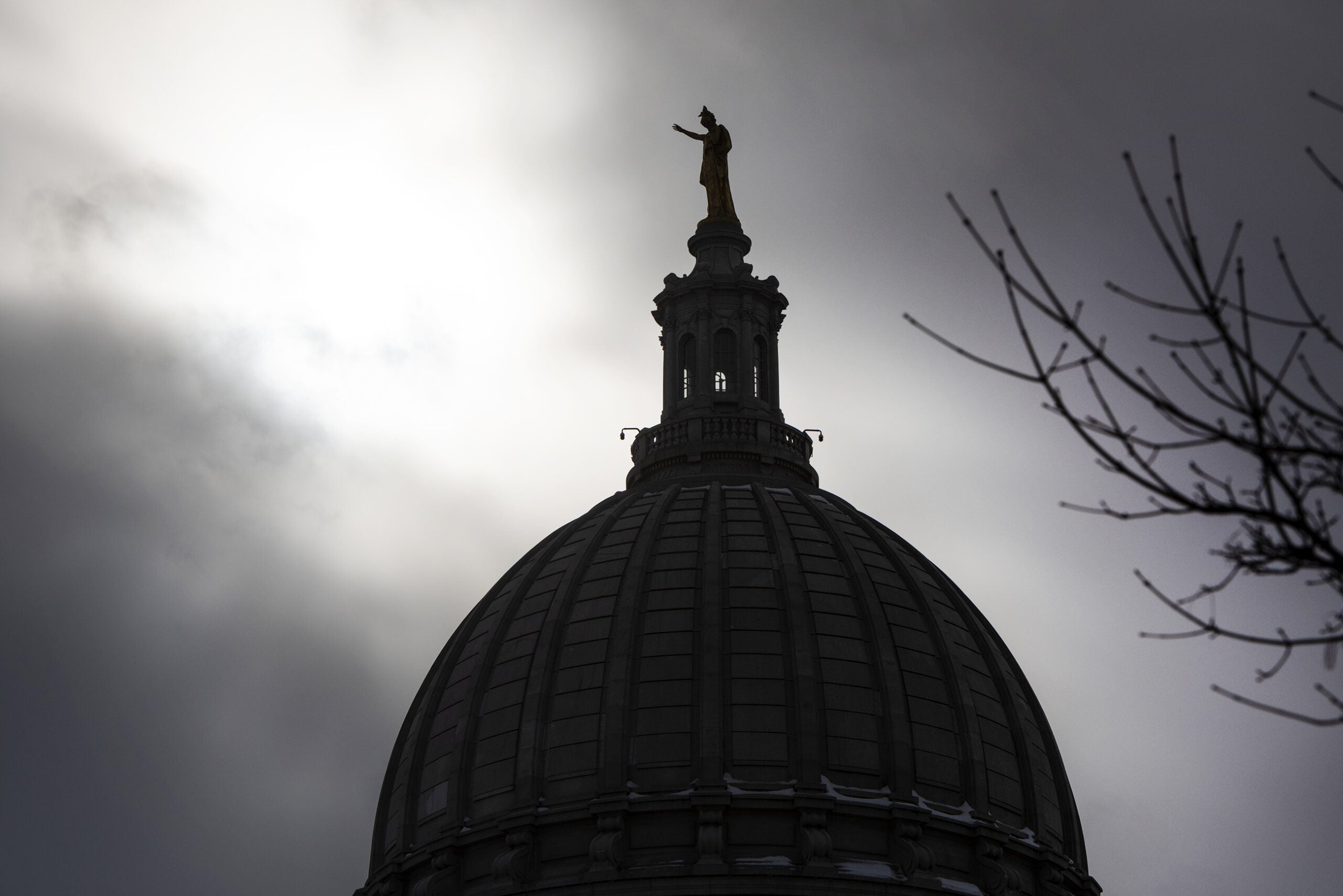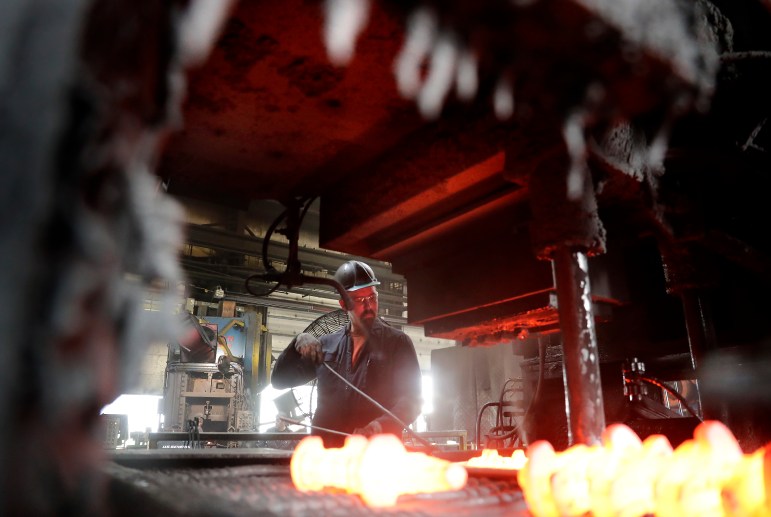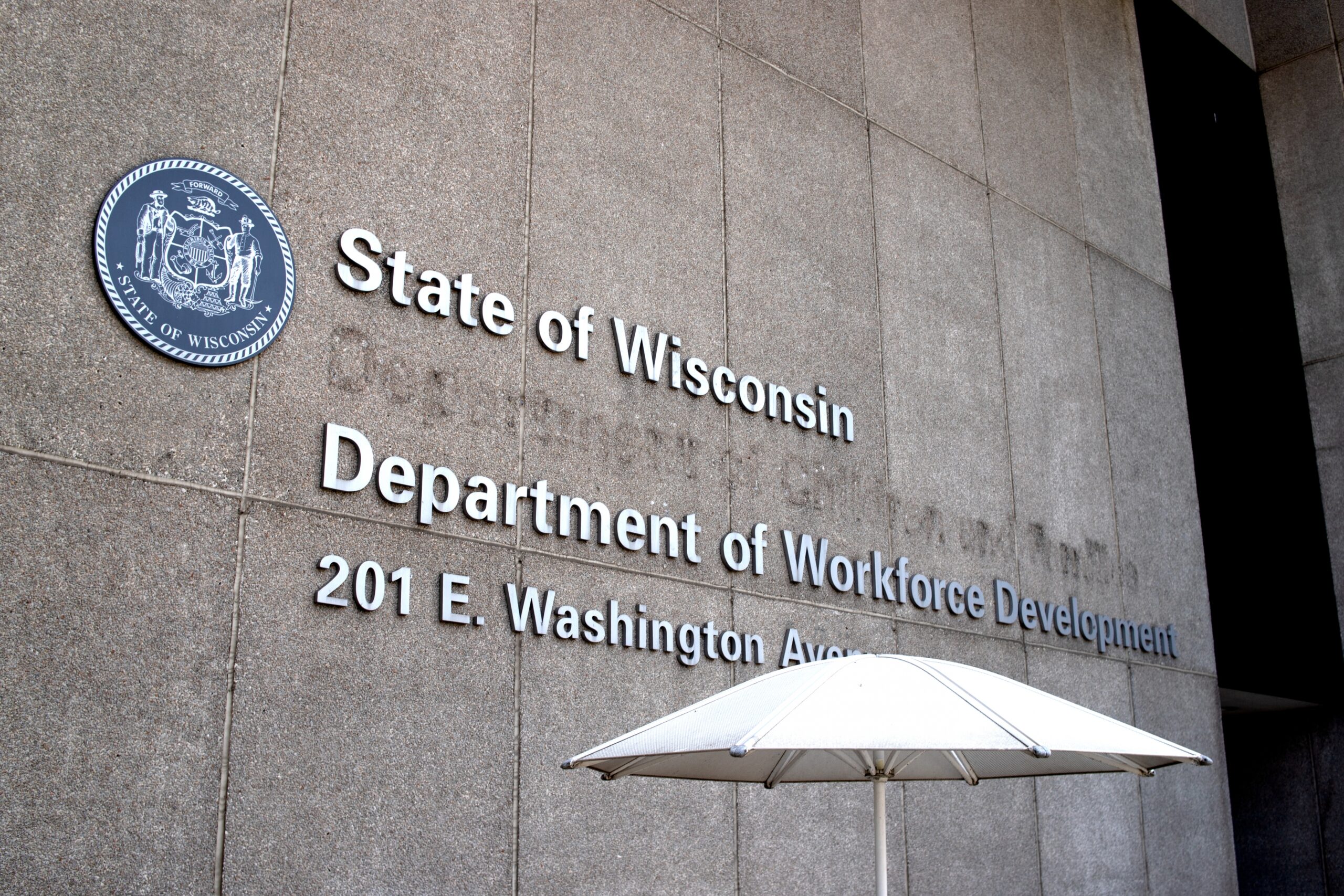The Federal Emergency Management Agency has approved Wisconsin’s application to participate in the Lost Wage Assistance program, which supplements unemployment insurance payments by $300 a week, according to a Tuesday press release from FEMA.
But despite the approval Tuesday, state Department of Workforce Development Secretary Caleb Frostman said Tuesday morning that eligible Wisconsinites likely won’t receive the money until October. Frostman said it’ll take the department four to five weeks to set up the program in its computer system, and two more weeks to test the system.
Troy Brewer, a line cook at the Milwaukee Bucks’ Fiserv Forum until he lost his job in March, said he’ll be “way in the red” by then. Without a federal supplement, Brewer receives a little more than $250 a week in unemployment benefits.
Stay informed on the latest news
Sign up for WPR’s email newsletter.
“Push comes to shove, I’ll probably have to go into my IRA or go into retirement to be able to be able to clothe and shelter and feed my kids,” said Brewer, who supports three children.
He said the extra $300 will help him some, but he knows bills will start to stack up quickly.
“I have health insurance, I have car insurance,” he said. “There’s more to it than just having a shelter over your head, but that’s the main thing I guess.”
DWD estimates that 140,000 out-of-work Wisconsinites are eligible for increased unemployment benefits.
The approval from FEMA comes five days after the Evers administration applied for the program on Aug. 28, and it means that Wisconsin is the 43rd state in the country to gain approval for the funding.
DWD said Tuesday evening that it had requested funding for four weeks of the $300 supplement from FEMA, meaning eligible recipients could get as much as $1,200 when payments start going out.
Unemployment insurance experts and advocates have previously raised concerns that funding from FEMA, which comes from a fund that’s also used for disaster relief, could be depleted quickly before many unemployed people have been able to access it.
DWD said Wednesday that FEMA effectively guarantees that funding for three weeks of the $300 supplement will be reserved for a state when it gets approved by the agency. But it remains unclear if Wisconsin has gotten approval for funding of the fourth week it requested when it applied Friday.
If Wisconsin does get approval for the fourth week, it’s also unclear if FEMA will reserve that money for a state like it does for the initial three weeks, or if there’s a risk that the money can be tapped for other purposes and depleted by the time Wisconsin is ready to start sending out payments.
Victor Forberger, a Wisconsin-based labor and employment attorney who specializes in unemployment cases, said he understands why DWD wants to participate in the new program. But, Forberger said, it comes as the agency is already struggling to run preexisting unemployment programs.
“If I’m juggling 13 balls, and I’m dropping them, I don’t need someone to toss me another ball to start juggling,” he said. “That’s essentially what’s going on here. It’s just a mess and … the hope of payment down the future when I’ve got people who have yet to get paid anything, it’s kind of a mirage.”
President Donald Trump unveiled the program Aug. 8 after Congress and the White House failed to reach an agreement on the next round of stimulus spending, including supplemental unemployment benefits. Both branches remain at an impasse more than six weeks after a $600 weekly supplement created under the federal CARES Act expired in Wisconsin on July 25.
To be eligible for the program, recipients must receive at least $100 a week in regular unemployment benefits before the federal supplement is added.
In addition, recipients must certify that they are partially or completely unemployed because of the COVID-19 pandemic. Unemployment insurance experts have warned that answering “yes” to this question is a condition of being eligible for the benefit, adding that many in other states have answered the question incorrectly.
Wisconsin Public Radio, © Copyright 2024, Board of Regents of the University of Wisconsin System and Wisconsin Educational Communications Board.






